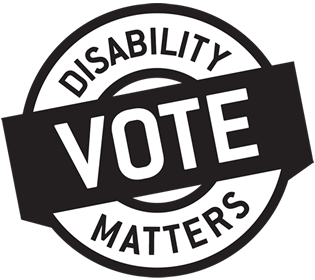Issue Two: Dignified Income
Disability Matters Vote is committed to providing Manitobans with detailed information to help eligible voters make informed voting decisions. We asked all four of Manitoba’s political parties to answer questions on the five priority disability issues in focus during this campaign. Here are the questions, and the parties’ answers in alphabetic order of the party:
Issue Two: Dignified Income
- What level of income do you see as dignified for adult Manitobans with severe and prolonged disabilities?
- Will you commit to providing a dignified income within current programs. How will you do so?

Green Party of Manitoba
1. It is very difficult to provide a precise income without knowing the circumstances of the individual person. Additional amounts need to need to be provided to assist those living with a disability based on individualized circumstances.
The Green Party of Manitoba would implement a basic income for all Manitobans immediately after forming government. Our proposed basic income would work in addition to Employment and Income Assistance (EIA).
Under our basic income proposal, the income of a single adult on social assistance would increase from $9,940 to $17,041, and the income of a single parent on social assistance would increase from $20,228 to $26,271.
Our modest basic income would have immense impacts on reducing poverty. The rates of poverty for adults would be reduced by 41 percent (lifting 35,000 people above the poverty line), and child poverty would be reduced by 61 percent (lifting 23,500 children above the poverty line). and for those still below the poverty line it would an increase in income of 21%.
This would be the first increase in social assistance rates in this province in 27 years. It is well overdue, but we also recognize that it is still not enough.
The Green Party of Manitoba also recognizes that our current EIA system was not designed to provide a dignified income for people with disabilities, we would work at reforming EIA policies that punish people for working or volunteering, or having too much savings.
Ultimately the Green Party of Manitoba would work towards a larger basic income that would replace the current patchwork of income support programs. We feel this would best be achieved through federal and provincial cooperation. We estimate that this would initially require a basic income of approximately $20,000 per person, but this number would change over time. Any figure should be indexed to a measure such as the Market Basket Measure of poverty, allow for regional variance, and take into account the specific circumstances of individuals, such living with a disability.
2. We have put out a detailed proposal of how we would deliver a modest basic income starting at $7,200 that would be delivered on top of existing EIA programs.
Please read the press release here: Link no longer available
And the detailed technical backgrounder here: Link no longer available
Liberal Party of Manitoba
1. Manitoba Liberals believe that all Manitobans deserve a livable wage. We have committed raising minimum wage to $15 within two years of being elected.
2. In addition to reforming EIA, Manitoba Liberals will introduce three complementary programs to help lift people out of poverty that provides individuals with choice as well as job opportunities:
- A minimum basic income based on a “negative income tax” model, that tops up income
- Raising minimum wage to $15 within two years of being elected
- A voluntary “Manitoba Works for Good” jobs program that would pay individuals who find themselves out of work with to do jobs in the public interest, as an alternative to EIA or basic income

New Democratic Party of Manitoba
1. We are committed to providing a dignified income for people with severe and prolonged disabilities. We know such an income must be sensitive to the various needs of people who have severe and prolonged disabilities and so are open to the fact that there may be no single number that is appropriate for people with disabilities. But we believe there must be a foundation that provides a basic income that is adequate to live a dignified life for all people with severe and prolonged disabilities.
2. As such we would strike a panel of experts to make such a determination – but we have committed in our platform to ensuring that all Manitobans with severe and prolonged disabilities receive a basic income that ensures they live a dignified life. We look forward to working with advocates, organizations, families and people with disabilities to make this goal a reality.
Progressive Conservative Party of Manitoba
A dignified income is one that recognizes the unique circumstance of the individual and facilitates economic independence—we know that for far too long in our province, those living with severe and prolonged disabilities have been reliant on Employment and Income Assistance (EIA) to meet their basic needs, for lack of an alternative.
The EIA program is ill-suited to Manitobans who face severe and prolonged barriers that preclude them from working, and the basic needs rates were frozen by the NDP government for 17 years.
A re-elected PC government is committed to moving Manitobans with disabilities currently receiving EIA benefits off the EIA program, and transitioning them to a new program better suited to their actual needs. We will engage in extensive consultation with the disability community to develop a new dignified income program for people with disabilities, and commit to supplementing the average total needs budget.
We will also strive to achieve greater integration with employment supports and ability assessments, to make sure we help those Manitobans with disabilities who are underemployed find greater independence through meaningful employment.
A re-elected PC government is also committed to supporting an employment-first approach where employment is the primary goal for working age adults with an intellectual disability. Participants will be supported to obtain integrated, community-based employment that pays a competitive wage and offers opportunities for training, professional development and career advancement.


